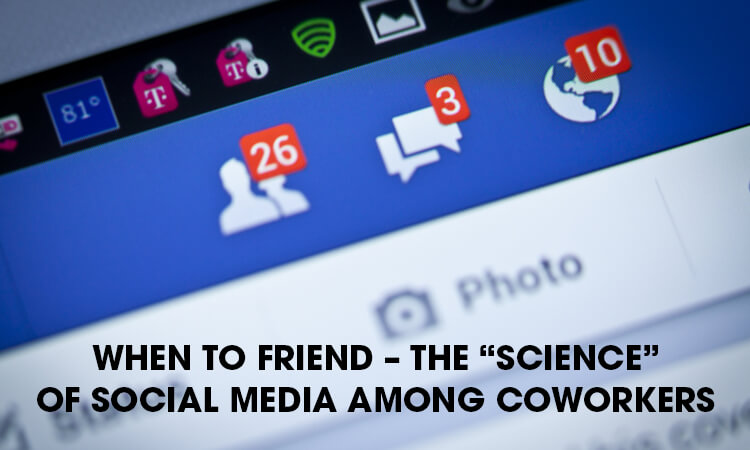
You enjoy the occasional chat with your coworkers; discussing the weekend, sharing vacation stories, or making vague observations about the weather. This type of casual conversation can be a welcome break from job monotony, and social interaction in the workplace is important. When it comes to friendships, though, where do you draw the line between your work and social lives? How much do you want your work friends to know about your life after 5?
Sooner or later, that friend request notification will pop up, and it can only be left pending in limbo for so long before the situation becomes awkward. So when do you accept it, or on the flip side of that token, when is it appropriate to send one?
Who We Are Online
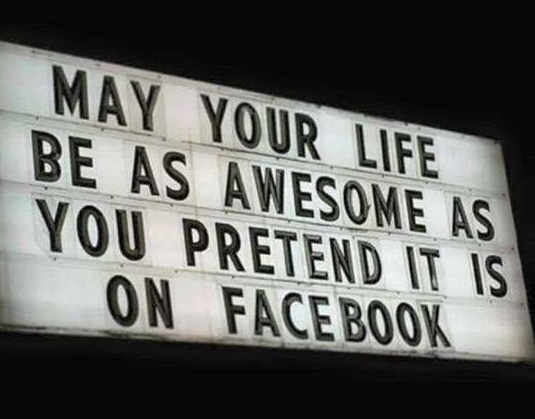
Social media outlets are essentially our online identities. Our behavior there can affect how we’re perceived in reality. By uploading photographs of our pets or ourselves at the beach, crafting what we think are witty status updates, sharing links to potentially polarizing news articles, and praising or criticizing political candidates, we carve out a very specific online persona. Often times, however, this persona may differ from our work identity. Because personal opinions may cause unwanted friction at work, it may be crucial to keep them neatly compartmentalized. When you’re clocked in, you want to be judged based on your performance, not your beach body.
What We Say
Some may even use social media as an outlet to vent work frustrations. Relieving though it may be, blowing off some steam can land you in hot water with the bosses. As such, it may be critical to keep a division between this fabricated, online persona and your work life.
How We Behave
Like in the real world, different social norms exist on different platforms. You wouldn’t behave the same way at a rock concert as you would in a board meeting. LinkedIn, for example, is a buttoned-down social platform meant strictly for business interaction. Others, like Facebook, are intended to be a bit friendlier.
Of course, businesses do have Facebook pages, and there are certainly individuals who incorporate a professional component to their profiles, but Facebook is largely a personal outlet. It’s meant to be a way for friends and family to keep in touch. So when a colleague reaches out through Facebook, things can get complicated.
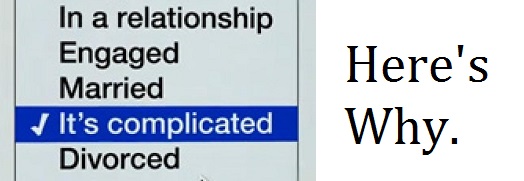
We Compartmentalize
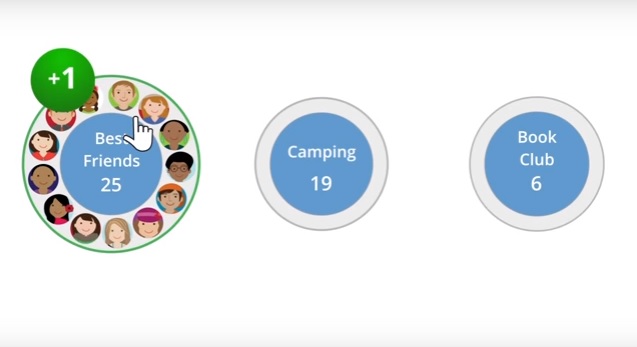
Even outside the digital world, we separate the people we know into different social circles. How we interact may differ between our family and coworkers; between our friends and our friends. Google+ integrated this natural tendency into their platform. In Google+, you are able to separate people into literal circles; work friends into one, close friends into another, distant acquaintances in a third, and so forth. You can then choose which of your circles see what you share.
Facebook, however, is slightly less intuitive when it comes to sharing. Yes, there are several options which allow you to select who sees your status update or picture. However, these options are off by default and require a bit of digging to find-more digging than the average user is likely to do. Generally speaking, your Facebook posts are visible to everyone on your friends list.
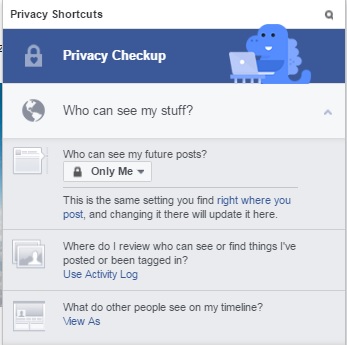
Real Life Relationships Are Often Unstated
It’s rare that we explicitly apply labels to those with whom we socially interact. Conversations don’t begin with phrases like:
“Hello, work-friend Emily!”
“How are you, long-time-pal Tim?”
“Still selling body wraps, person I went to high school with?”
Other than marriage or “Facebook official” couplings, a level of ambiguity exists in our real-life relationships. It is because of this undefined nature of our relationships that we often run into awkward situations on social media.
We may be friendly with coworkers, but not necessarily consider them a friend. Conversely, a coworker may assume a certain level of friendship based on his or her interpretations of your interaction. This has the potential to hurt some feelings. Denied or unaccepted friend requests could cause an amicable relationship to collapse.
So what’s the answer?
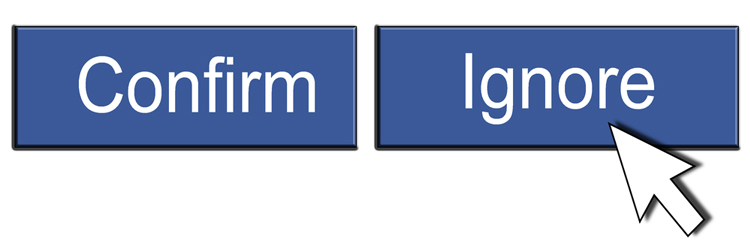
You could do nothing.
Leave the friend request pending or deny it. As previously mentioned, this might bruise a few egos, but not always. Many people choose to send requests en masse to anyone they meet. These people are looking to expand their network and will likely not even notice if one of those requests is left pending.If, for some reason, the pending friend request is brought up in-person, you have two options:
1) Lie. You could either say you only use Facebook to keep in touch with close family and friends, or that you didn’t see their request because you aren’t frequently on Facebook. This way, you can have your cake (maintain your work relationship with this person) and eat it, too (avoid interaction with them outside of work). If you’re ok with a touch of dishonesty, this may be your best option. Is it conniving? Sure. Does it make you a bad person? Probably.OR
2)Be honest. Explain to this person that while you do enjoy the time you spend together at work, you would like to keep your relationship strictly business. If they’re not ok with respecting your boundaries, then the distance this dose of honesty puts in your relationship with them may be for the best.
You could nip it in the bud.

If you anticipate a friend request from someone you know you won’t accept, a last-ditch, preventative effort would be to proactively block their profile. When they search your name to send a friend request, they won’t be able to find you, nor will they be able to see your communication between mutual friends. An extreme measure, for sure, and certainly a little harsh, but it’s also a clean way to avoid undesired connections.
You could accept it.

Maybe you’re interested in expanding your social network. If this is the case, you likely have a large number of connections. With the exception of family and close friends, you probably don’t interpret any of them to be particularly close. So when your phone flashes with that friend request notification, accept it!
Even better still, maybe you genuinely enjoy this person’s company. You get along well, share the same interests, and look forward to the after-work happy hour with them. There’s no reason at all that you should hesitate to befriend someone just because you work together. If this is the case, you shouldn’t have even needed to read this article at all.
You could stop caring so much.

Ultimately, it’s up to you. The Amount of energy spent pondering Facebook friendships is probably better invested elsewhere. This was a platform created for college students after all. Drama between who said what to whom is a kid’s game. The decision to accept, deny, or ignore a pending friend request from a coworker is probably much less consequential than you think.

